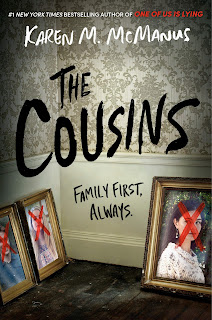As I noted in my previous post, Tom Jones was a "novel" piece of writing for that time in the 18th century. It is no wonder that this author, probably accustomed to the classics, needed to find a way to entrench his book within the reader's mind. He does so by referencing as many well-known works as possible, though
this book was truly novel as there was "low culture" as well as classical learning. This book could be read by both upper and lower class citizens, a compliment to Hogarth and Addison and Steele and the raunchy plays of the day.
The author makes numerous references to what would be considered higher cultured artists: "O Shakespeare, had I thy pen! O, Hogarth, had I thy pencil!" (482) While in this section he claims he cannot write or draw the scene the way these two great masters would, simply by invoking their names he uses their technique to add complexity to the moment. Such a great moment would need a great artist to depict it! And since the author is the creator of said moment, in a way he lends credibility to his own words.
It is also important to note that there is a serious conversation on the topic of Punch and his Wife Joan. I thought it sounded rather familiar, and then I realized I myself had once seen the Punch and Judy show at
Why does Mr. Jones defend such violent and crude humor, and yet not too much farther in the text, breath Aristotle or Odyssey? In the same way that The Beggar's Opera appealed to so many people, this writing reaches all readers, as most would have seen a Punch and Joan show. By including these works he pushes the boundaries of the new "novel" genre, and lays the groundwork for a bourgeois culture
In the end, it is ironic that Fielding draws from both the classics and the "modern" in order to create this new genre. Is it that it would be not as accepted to a wider audience unless it contained these references? It is odd, as now this once "new" literary genre has taken over the print culture, and Tom Jones itself is considered one of the classics from which to draw inspiration.
Sources
Tom Jones
Photo 1-http://en.wikipedia.org/wiki/Aristotle
Photo 2-http://en.wikipedia.org/wiki/Punch_and_Judy



Great post, Kristen. I too had an interest in understanding why Fielding incorporates both low and high forms of entertainment like Punch and Joan and English pantomime. As you mentioned, I too feel Fielding’s incorporation of both low and high culture appeals to both upper and lower class citizens, and this availability helps establish the new “novel” genre. His lauding of the puppet show, along with classical allusions, may also illustrate the importance of both education and entertainment. He also includes both low and high characterization in the novel to illustrate the reality of human behavior. All are capable of low behaviors including those who may conceal it through the profession of moral and religious doctrines. The landlady also criticizes the puppet show because of its lack of moral teachings. This illustrates that when manners and morals are the only interests and concerns, there will always be complaints that it is still lacking in moral teachings and civility. By disagreeing with the replacement of this low-brow form of entertainment for a higher one that teaches the youth about morals and manners, Fielding may also be censuring Walpole’s Licensing Act of 1737 that ended his career in theater due its satirical, rather than moral nature.
ReplyDelete